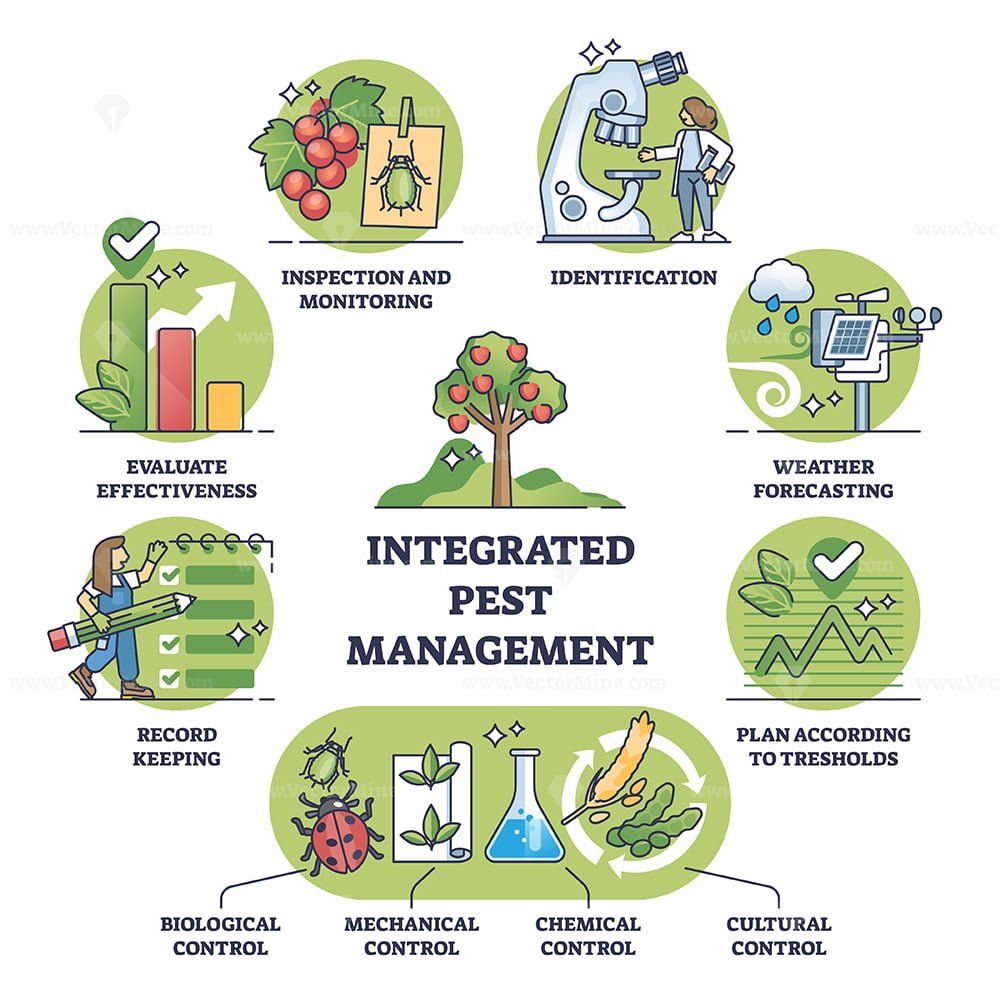Sustainable Urban Garden Pest Control

Sustainable Urban Garden Pest Control: A Greener Approach
Gardening in the city is a rewarding hobby, but pests can turn your urban oasis into a battlefield. Before you reach for the chemical spray, consider sustainable urban garden pest control. It's not just about being kind to the environment; it's about creating a safe, healthy space for you and your loved ones to enjoy.
Why Choose Sustainable Practices?
First things first, why should you bother with eco-friendly gardening? Well, conventional pesticides contain chemicals that can harm more than just pests. They can be detrimental to beneficial insects, birds, and even your pets. Plus, they can contaminate soil and water, and may pose health risks to you and your family. Organic pest control, on the other hand, is gentler on the environment and your health.
Understanding Your Garden's Ecosystem
Before you dive into urban gardening and pest control, understand your garden's ecosystem. Every garden is a complex web of life, from the soil microbes to the birds in the trees. Pests are just one part of this web. The key to sustainable urban garden pest control is working with this ecosystem, not against it.
The Role of Beneficial Insects
Not all bugs are bad. In fact, many are natural pesticides, preying on the pests that munch on your plants. Ladybugs, lacewings, and praying mantises are just a few examples. Attract these helpful critters by planting pollen and nectar-rich flowers, and providing shelter like tall grass or a bug hotel.
Organic Pest Control Methods
Now, let's dive into some organic pest control methods. Remember, the goal is not to eradicate pests but to keep their numbers manageable.
Physical Barriers
Sometimes, the simplest methods are the most effective. Row covers, netting, and collars can protect your plants from pests. These barriers are especially useful for preventing infestations early in the growing season.
Companion Planting
Some plants naturally repel pests. For instance, marigolds contain a substance called thiopene, which helps deter nematodes (microscopic worms). Planting these alongside your veggies can help keep pests at bay.
Homemade Sprays
Why buy expensive, chemical-laden sprays when you can make your own at home? Soap and water, garlic, and hot pepper sprays can all be effective natural pesticides. Just remember, even these can harm beneficial insects if not used carefully.
The Power of Prevention
As the saying goes, an ounce of prevention is worth a pound of cure. Healthy plants are better equipped to fend off pests, so focus on building strong plants.
Soil Health
Healthy soil equals healthy plants. Composting and using organic fertilizers can boost your soil's health, making your plants more resistant to pests.
Crop Rotation
Rotating your crops each year can help prevent pests and diseases from building up in the soil. It's a simple technique that can make a big difference.
When to Intervene
Even with the best prevention, you'll likely encounter pests at some point. But before you intervene, ask yourself: is this causing significant damage? Remember, a few nibbled leaves won't hurt most plants. Save your organic pest control methods for when they're truly needed.
Specific Pests and Solutions
Let's talk about some common urban garden pests and sustainable practices to control them.
Aphids
These tiny, sap-sucking insects can multiply rapidly. Luckily, they're a favorite snack of many beneficial insects. You can also blast them off plants with a strong spray of water, or use an insecticidal soap.
Slugs and Snails
These slimy critters love to munch on young seedlings. Copper tape, diatomaceous earth, and iron phosphate baits can all help control them. You can also encourage birds, their natural predators, to visit your garden.
Whiteflies
Like aphids, whiteflies suck sap from plants. They can be controlled with insecticidal soap, horticultural oil, or vacuuming (yes, really!).
Beyond the Garden: Community Impact
Your sustainable urban garden pest control efforts can have a ripple effect. By reducing your reliance on chemical pesticides, you're helping to create a healthier environment for your whole community. Plus, you're setting a positive example for others to follow.
Resources for Further Learning
There's always more to learn about eco-friendly gardening. Websites like Rodale's Organic Life offer a wealth of information on natural pest control methods. Don't be afraid to reach out to local gardening groups or cooperative extensions for advice tailored to your area.
Conclusion
Sustainable urban garden pest control isn't just about protecting your plants; it's about nurturing a healthy, balanced ecosystem. It's about choosing organic pest control over harsh chemicals, and natural pesticides over synthetic ones. It's about working with nature, not against it. So go ahead, give it a try. Your garden, and the planet, will thank you.
FAQs
Q: What are some common organic pest control methods?
A: Common organic pest control methods include physical barriers, companion planting, homemade sprays, and encouraging beneficial insects.
Q: Why is soil health important for pest control?
A: Healthy soil leads to healthy plants, which are better equipped to resist pests. Plus, healthy soil is teeming with beneficial organisms that can help control pests.
Q: How can I attract beneficial insects to my garden?
A: Planting pollen and nectar-rich flowers, providing shelter, and avoiding broad-spectrum pesticides can all help attract beneficial insects.
Q: When should I intervene with pest control methods?
A: Intervene when pests are causing significant damage to your plants. Remember, a few nibbled leaves won't hurt most plants.
Q: How can sustainable pest control benefit my community?
A: By reducing your reliance on chemical pesticides, you're helping to create a healthier environment for your whole community. Plus, you're setting a positive example for others to follow.
0 Response to " Sustainable Urban Garden Pest Control"
Post a Comment